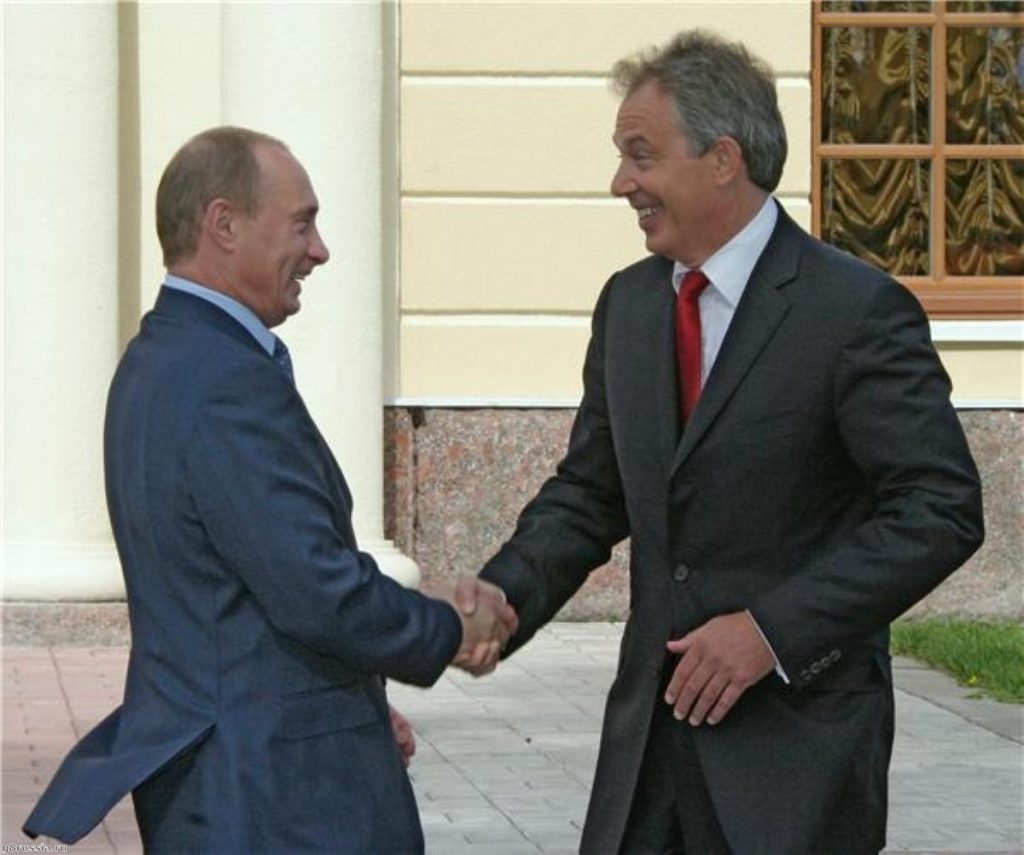Blair silent on Russian human rights
Tony Blair last night failed to confront Russian president Vladimir Putin over concerns about the country’s human rights record, reports have claimed.
Yesterday, the prime minister’s official spokesman indicated the issue of human rights might be raised with Mr Putin during a dinner following an informal summit of EU leaders in Finland.
Downing Street had said that conversation between the two leaders would be led by discussions about energy supply and the current crisis in the Darfur region of Sudan, but that other topics might include the recent murder of Russian journalist Anna Politkovskaya.
Ms Politkovskaya was found shot dead in her Moscow flat earlier this month amid speculation that her death may have been linked to her ongoing criticism of the Kremlin’s actions in Chechnya, where she uncovered abuses committed by Russian troops.


Russia has also attracted criticism over its increasingly frosty relations with neighbouring state Georgia, after four Russian soldiers were arrested by the former Soviet republic on spying charges.
Moscow subsequently deported hundreds of Georgians from Russia claiming they were living in the country illegally and imposed a postal and transport blockade on Georgia, in addition to cracking down on businesses run by Georgians in the country.
However, the Daily Telegraph reports that Mr Blair did not raise human rights issues with Mr Putin at last night’s dinner in Lahti. Instead, he chose to focus on trying to secure Britain and other European countries better access to Russia’s vast oil and gas reserves.
Speaking after talks with other EU leaders, Mr Blair stressed the importance of the relationship between Europe and Russia, but said questions of energy security should be influenced by business rather than politics.
“One of the reasons for the discussion this evening is to be very frank about that relationship, that it is important that if we have a business relationship based on energy, that it is business considerations and not political considerations that are coming into it, that there are rules, clear rules on either side,” Mr Blair told reporters.
He was responding to questions over whether EU leaders were concerned about human rights in Russia.
The prime minister said that there was a “strong desire” among EU leaders for Russia to sign a 1991 energy charter that Moscow had yet to ratify, with western European countries keen to secure a commitment from Mr Putin over stable and transparent access to Russian oil and gas supplies.
It was also important to ensure Britain had a “diversity of supply”, he added, warning the country would “lose its self-sufficiency in oil and gas in the years to come”.
“It is another reason why I think it is important we replace our nuclear power stations, and it is also important to make the big drive on renewables, because this has the benefit, both of security of supply, but also climate change action as well,” Mr Blair said.









